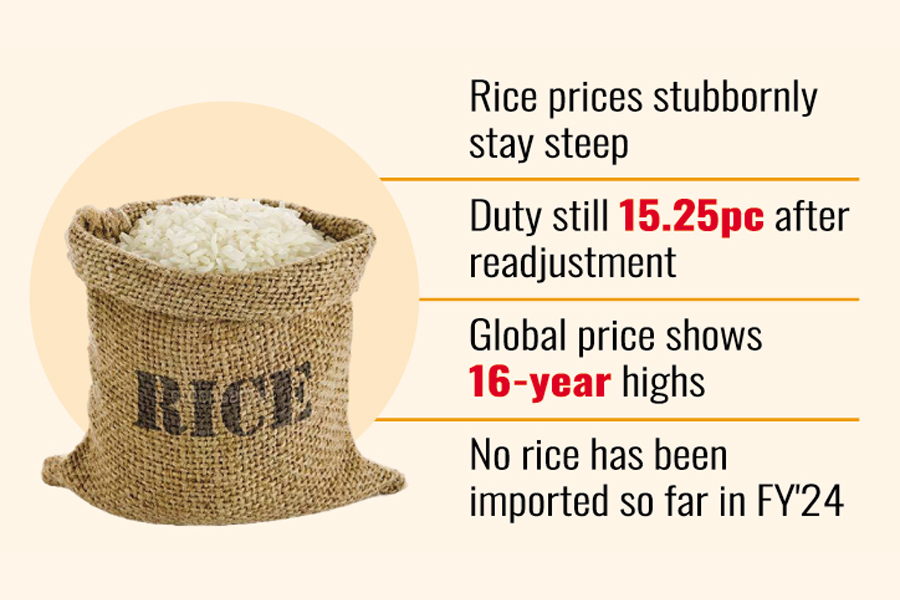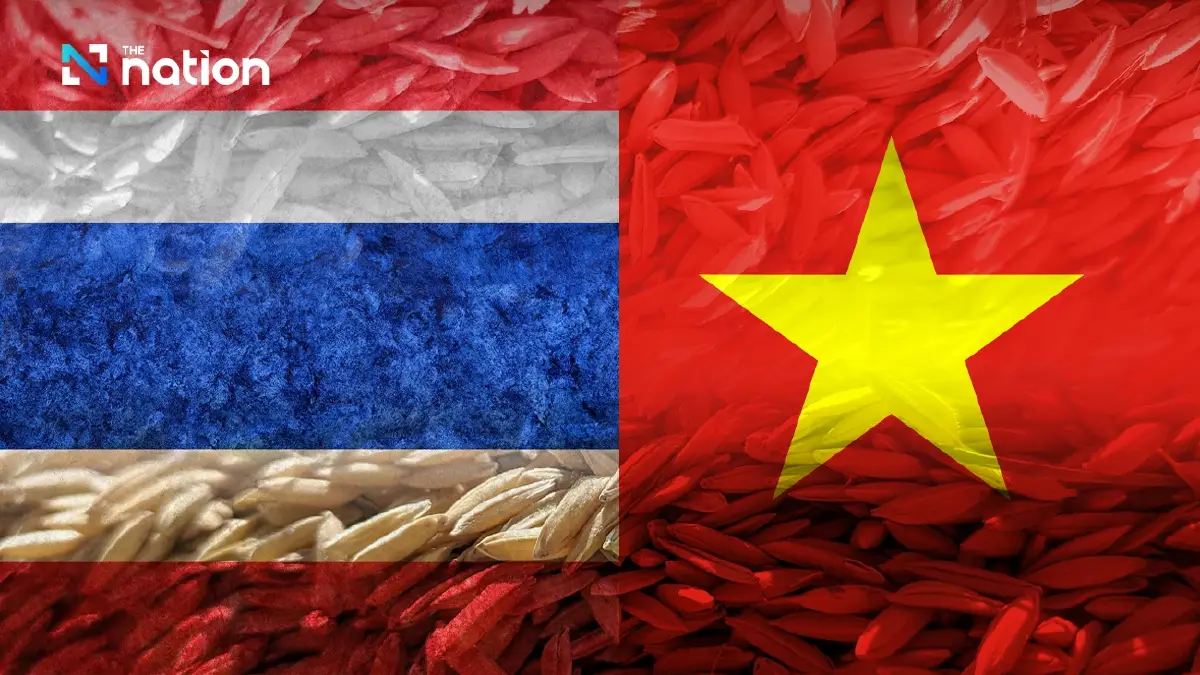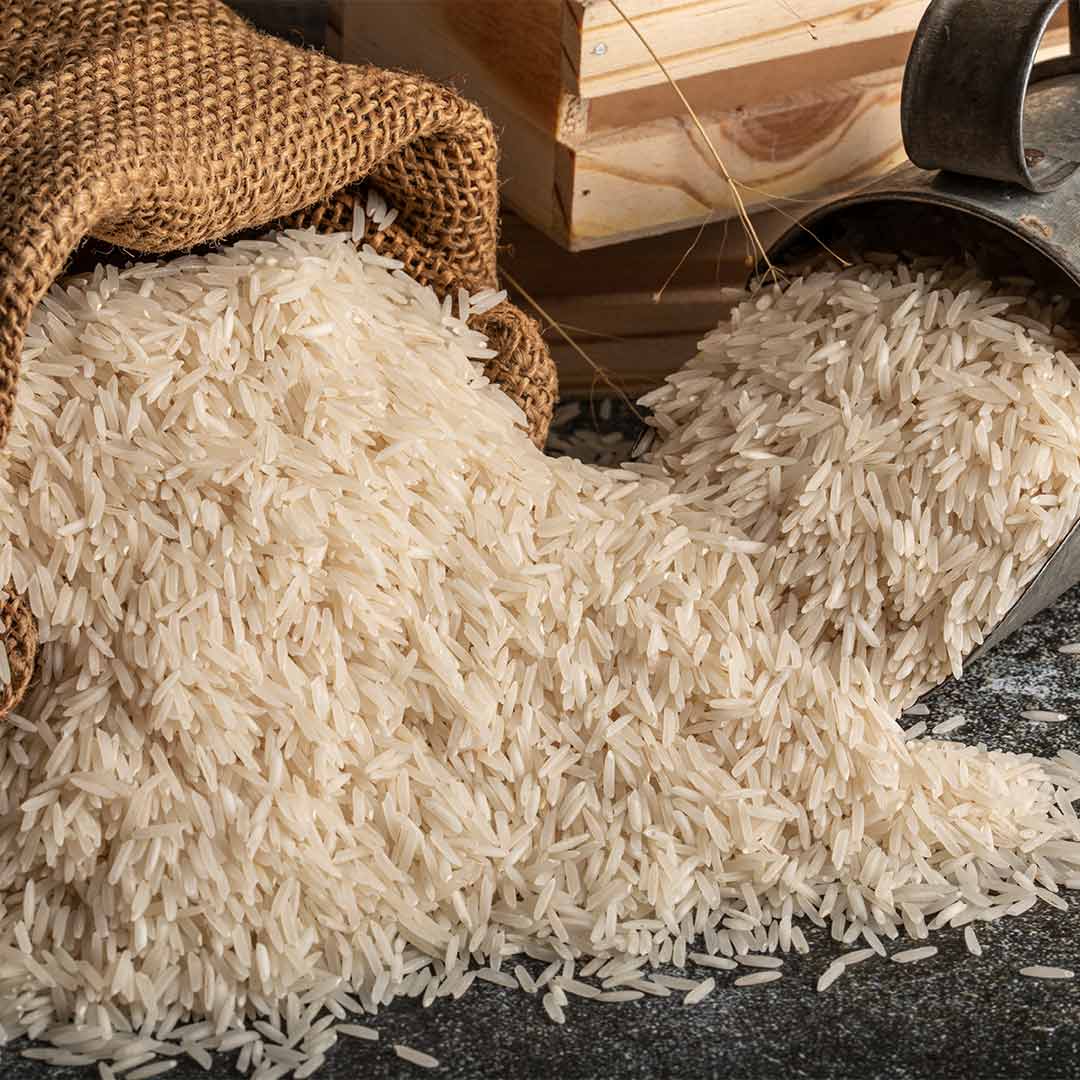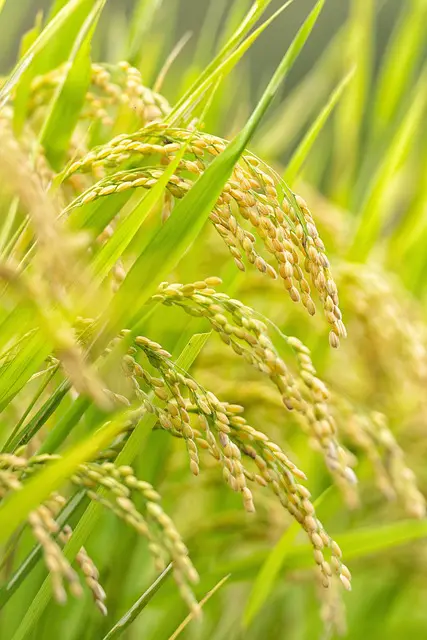Tags
Importers reluctant to bring in rice despite duty cut

Rice prices still stay higher despite slashing import duty to 15.25 per cent from 62.5 per cent, while a section of traders are reaping windfalls.
Coarse rice like guti swarna and hybrid variety was selling at Tk 52-55 a kilogram, medium-quality BRRI dhan 28, swarna-5 at Tk 65-68 and different kinds of finer rice like miniket, jeera, and najirshail at Tk 75-98 a kg in Dhaka, according to market sources.
Higher global prices of rice as well as the existing level of duty are, however, discouraging importers from trading in the item for now, said market sources.
Meanwhile, millers and traders were also not responding to the warnings issued by the government over their alleged market manipulation.
The global rice prices also increased further, making it more difficult for the government to source rice from the international market.
FAO monthly data show a 13-percent surge in rice prices in January 2024 compared to that of 2023.
The current price indices are the highest since 2008, says the UN Food and Agriculture Organisation, in reference to the previous dearth.
Indian and Pakistani parboiled rice was available at $530-553 a tonne, while Vietnamese and Thai ones at $599-650.
Johurul Islam, a Dinajpur-based importer, says despite the duty cut, import cost would be much higher than the existing domestic price.
“Coarse rice, which is selling at maximum Tk 46 a kg at mill gates, would cost Tk 69 if it is imported without any duty even,” he adds.
The trader thinks import cost of medium-quality rice like BRRI dhan 28 would be more than Tk 75 a kg.
He says the easiest source for rice is India but the country has still a 20-percent export duty while their FOB rate is above $530 a tonne.
“Added up to this, local import duty is 15.25 per cent and sourcing dollar is another tough task.”
He also says private importers are not interested in bringing in rice circumventing such barriers.
In the meantime, in the second week of January, the millers raised prices of rice suddenly by Tk 5.0-7.0 a kg.
Following the market volatility, food minister Sadhan Chandra Majumder warned traders and millers of action unless prices were reduced within four days.
Meanwhile, the commerce ministry and food ministry conducted countrywide drives and fined “dishonest” traders in government’s bid to come to grips with what is dubbed oligopoly.
The food ministry also forced the rice millers and companies to inscribe mill-gate price and MRP of rice on the sacks and packets.
The official genetic name of the rice variety must also be mentioned, said a food ministry notification.
Consumers Association of Bangladesh (CAB) vice-president SM Nazer Hossain says retail prices of rice is much higher despite government’s several moves.
“Companies, millers and their allied traders have been making unethical profits from a surprise hike in rice prices last month,” he says.
The consumer-rights campaigner has urged the government to take action against rice hoarding and to bring the lawbreakers under exemplary punishment for checks and balances in the market.
Value-chain-expert Prof Dr MA Jalil mentions that global rice prices were now going through record highs, while import options for Bangladesh have been squeezed amid Indian export restrictions.
“Proper management of domestic stock is very necessary now to tackle any possible shortage as the country got a handsome 15 million tonnes of production in the just-ended Aman season,” he says.
He suggests sound production should be ensured also in the ongoing Boro season which contributes more than 55 per cent to the demand.
Apart from India, he has suggested that private companies be given all facilities to buy in rice from other countries like Thailand, Vietnam and Pakistan to maintain smooth supplies and rational prices.
“Import duty should be zero-rated for now to encourage importers,” he says.
According to the food ministry, the country hasn’t imported any rice so far this financial year.
The country has a demand for 33-34 million tonnes of rice while it produces 37 million tonnes, says the ministry, which shows a surplus.
Mismanagements in the market and post-harvest losses create market volatility despite having a rice surplus, market experts have said.
https://thefinancialexpress.com.bd/trade/importers-reluctant-to-bring-in-rice-despite-duty-cutPublished Date: February 25, 2024







